Search Results
Showing results 21 to 40 of 40
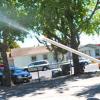
PVC Water Squirter
Source Institutions
In this activity, learners build a water squirter using a PVC pipe, dowel, and foam. This activity is great for the summer time and introduces learners to forces and water pressure.
The Right Fit
Source Institutions
In this math activity, learners trace their hands and estimate the number of beans that can fit into their hand tracings. Then, learners glue the beans to the tracing to test out their estimations.
More Bubbles!
Source Institutions
In this math activity, learners make their own bubble wands and determine if the size of the wand affects the number of bubbles it produces.

Family Reunion
Source Institutions
In this activity, learners combine counting, area and perimeter concepts as they prepare the seating arrangement for a family reunion dinner.
Peppy's Day in the Park
Source Institutions
In this math activity, learners build Peppy the dog the best trail and park for running around.
Mystery Jars: Make Your Own: Estimating and Counting
Source Institutions
Learners make a counting/estimating jar to exchange with friends or bring home.
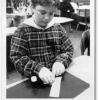
Cylinders and Scale
Source Institutions
In this activity, learners investigate the relative growth of lengths, areas, and volumes as cylinders are scaled up.

Fun With Stress
Source Institutions
In this activity, learners complete simple exercises to investigate the relationship between force, area and pressure and their effects on materials.
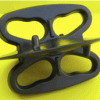
Air Pressure and Dent Pullers
Source Institutions
In this activity, learners simulate Otto von Guericke's famous Magdeburg Hemispheres experiment.
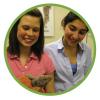
Gecko Feet
Source Institutions
This is an activity (located on page 3 of PDF under Gecko Feet Activity) about modeling a nanoscale phenomenon (gravity-defying gecko feet) with macroscale objects (shoes).
Six Squares: Geometry and Design
Source Institutions
In this activity, learners take a turn contributing a closed figure made of six squares to a large grid; each must be different from all the others on the grid so far.

Arctic Sea Ice
Source Institutions
In this activity, learners explore how the area of Arctic sea ice has changed over recent years. First, learners graph the area of Arctic sea ice over time from 1979 to 2007.
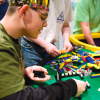
Construction and Destruction
Source Institutions
In this three/four-day lesson, learners calculate perimeters and areas and draw the castle plan to scale.
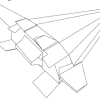
Proportionality: The X-Plane Generation
Source Institutions
In this activity, learners build a 1:140 "scale model" of NASA's X-33 Reusable Launch Vehicle (RLV) Technology Demonstrator, and investigate how the model dimensions compare to the real vehicle.
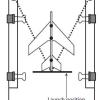
Geometry and Algebra: The Future Flight Equation
Source Institutions
In this activity, learners discover how NASA engineers develop experimental aircraft.
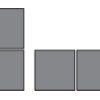
Beyond Dominoes: Polyominoes
Source Institutions
In this activity, learners add squares to paper dominoes to make polyominoes.

How Big is Small
Source Institutions
In this classic hands-on activity, learners estimate the length of a molecule by floating a fatty acid (oleic acid) on water.
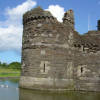
Castle Basics
Source Institutions
In this four-day lesson, learners identify three-dimensional forms in castle design, research different parts of the castle with a focus on their uses, and design and enlarge a banner for the great ha
Giant Museum: Create a Scale Model
Source Institutions
In this activity, learners will predict the size of a giant scale model of a comb or other rectangular object, then make one. If you tripled the size of a dollar bill, could you sit on it?
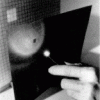
Inverse Square Law
Source Institutions
In this math activity related to light, learners explore why a light, such as a candle or a streetlight, looks dimmer the farther away from it we get.
